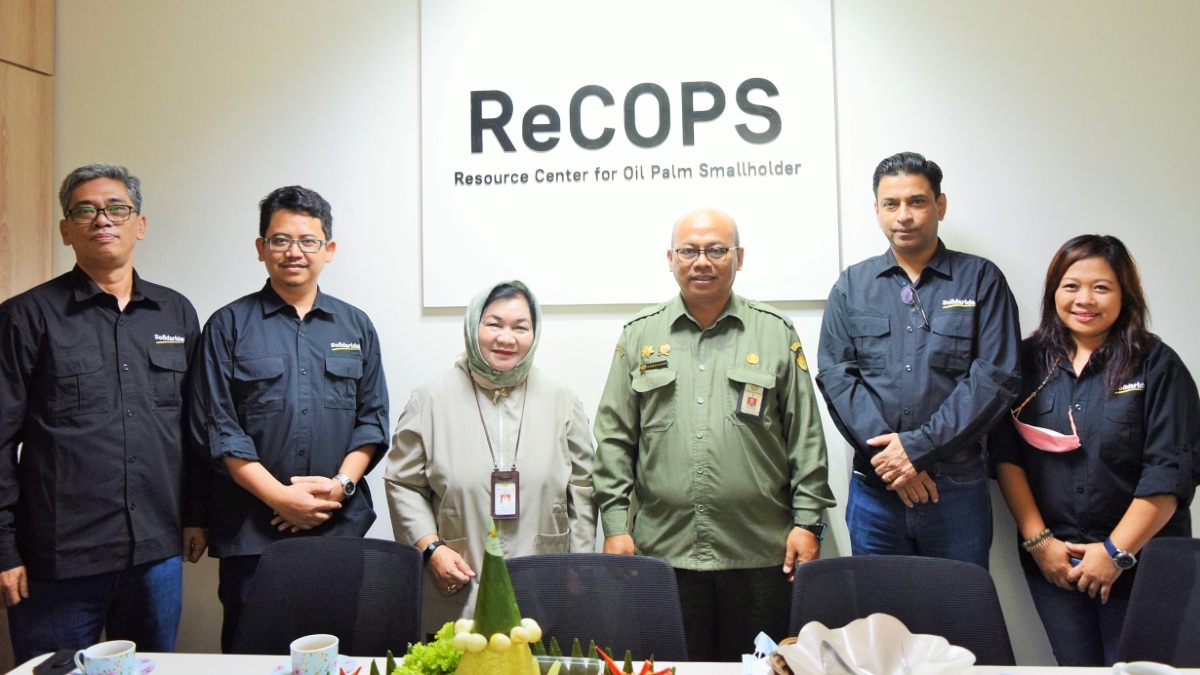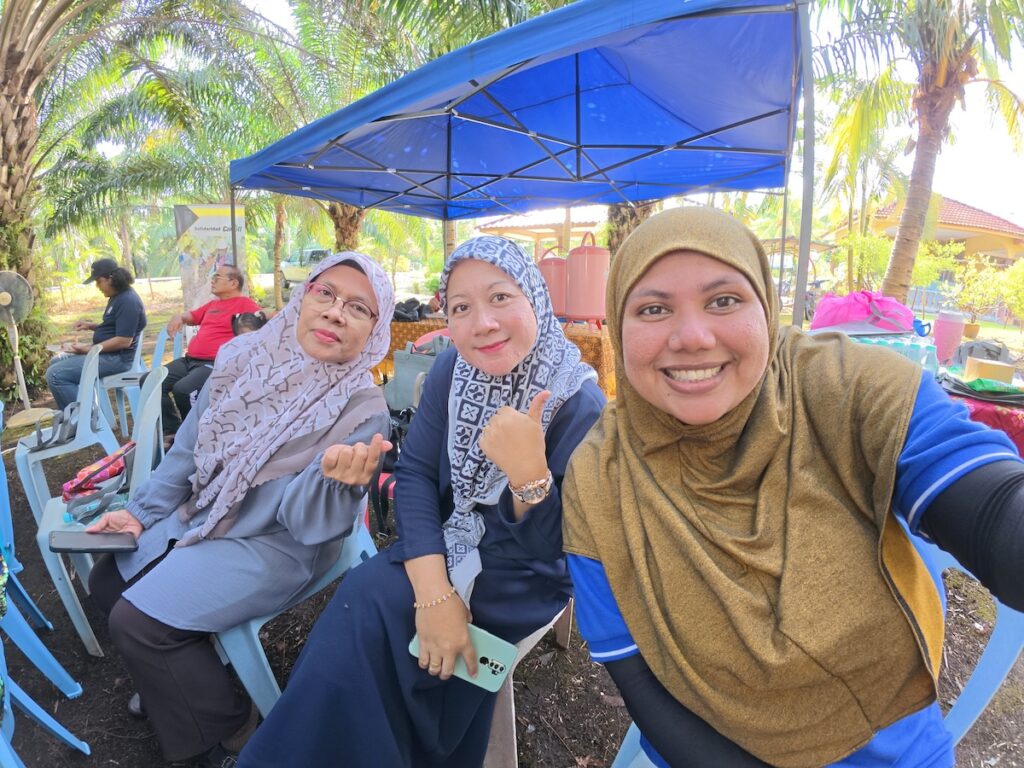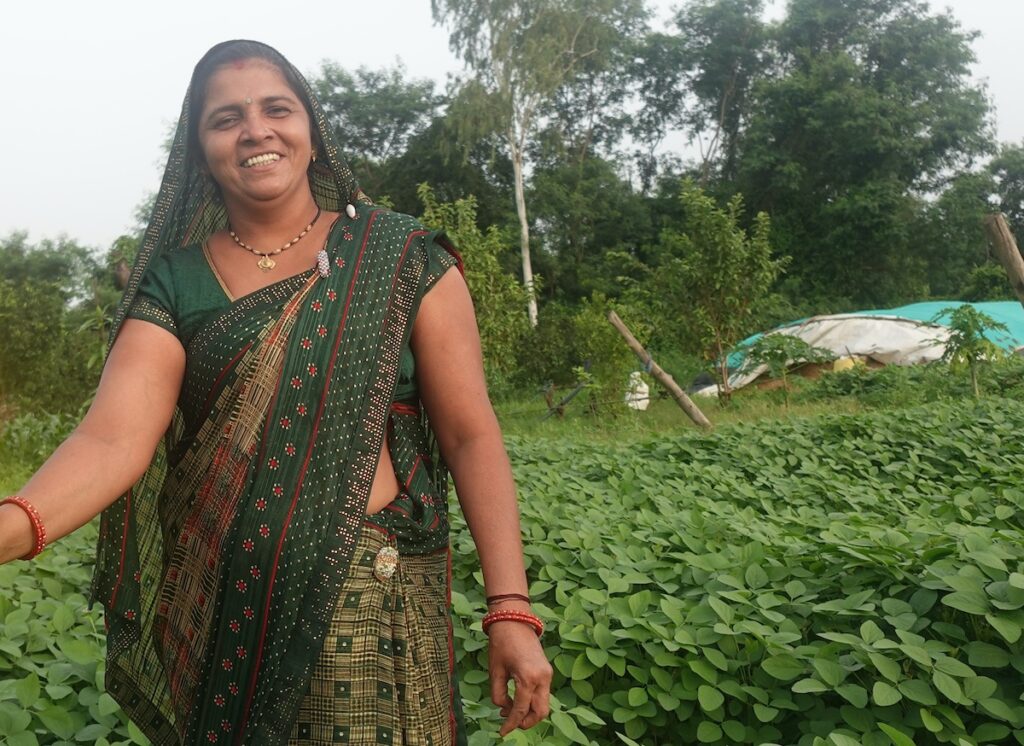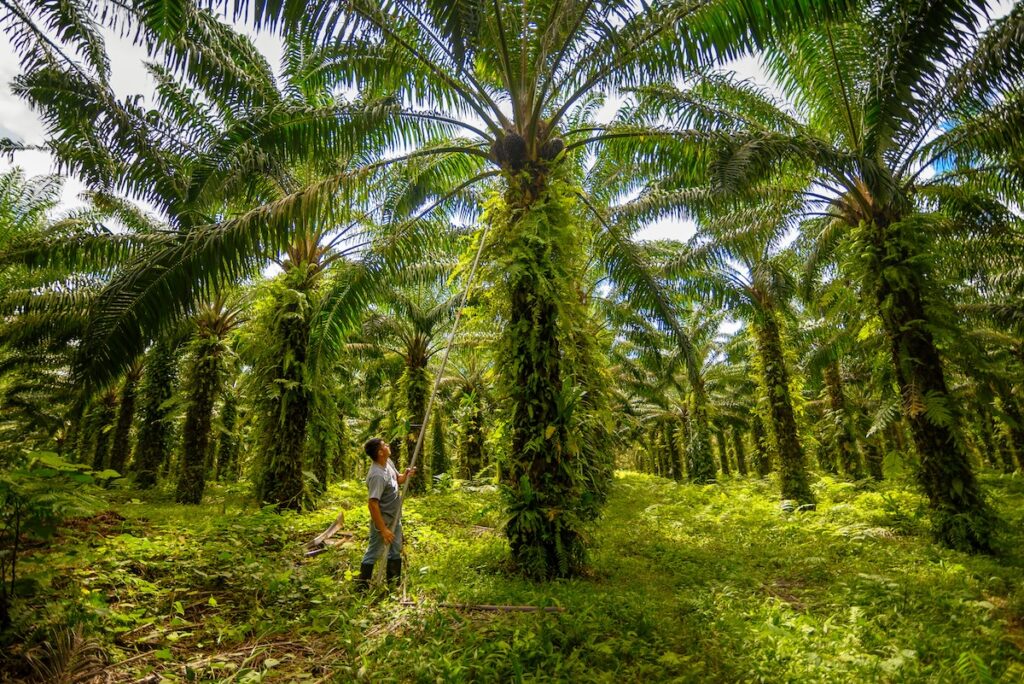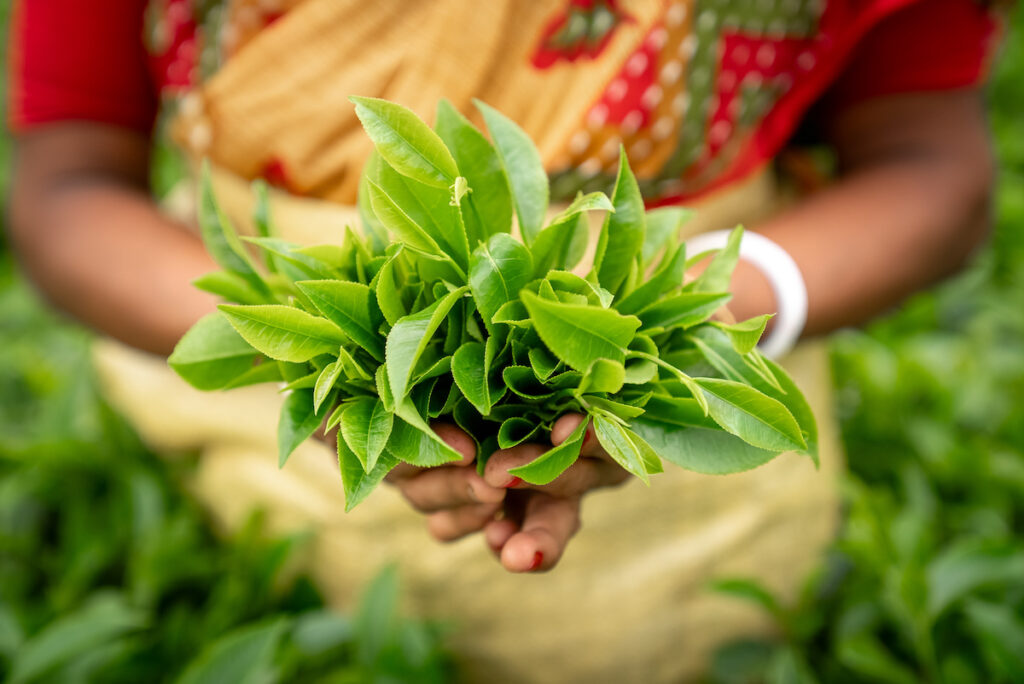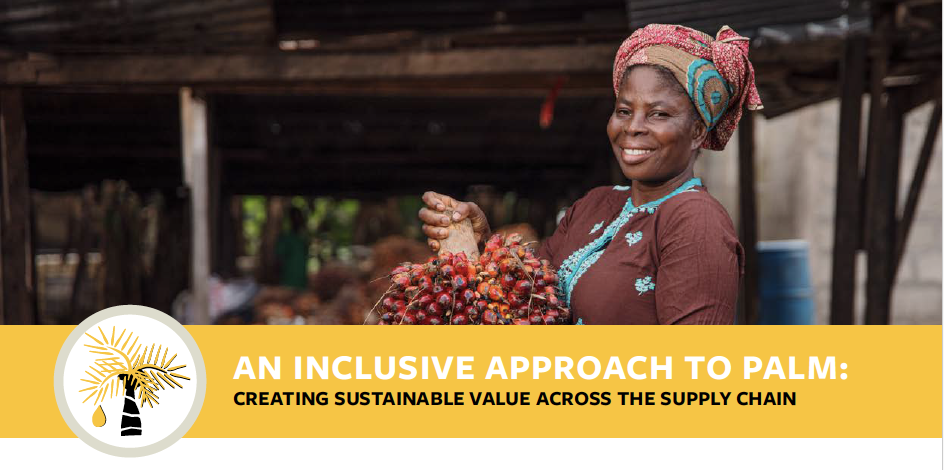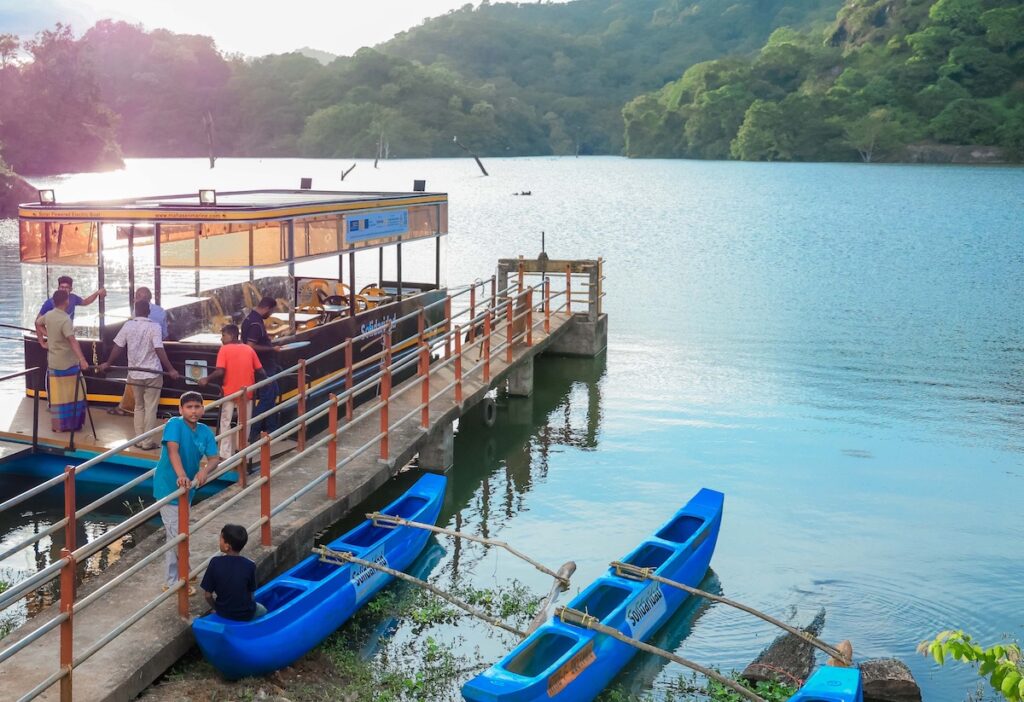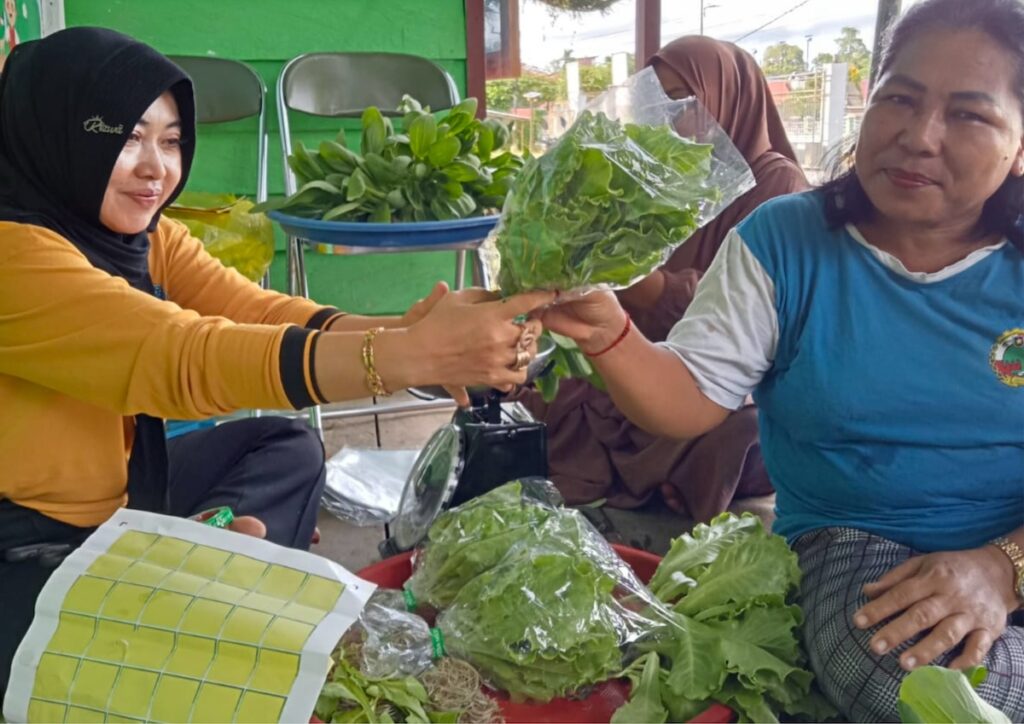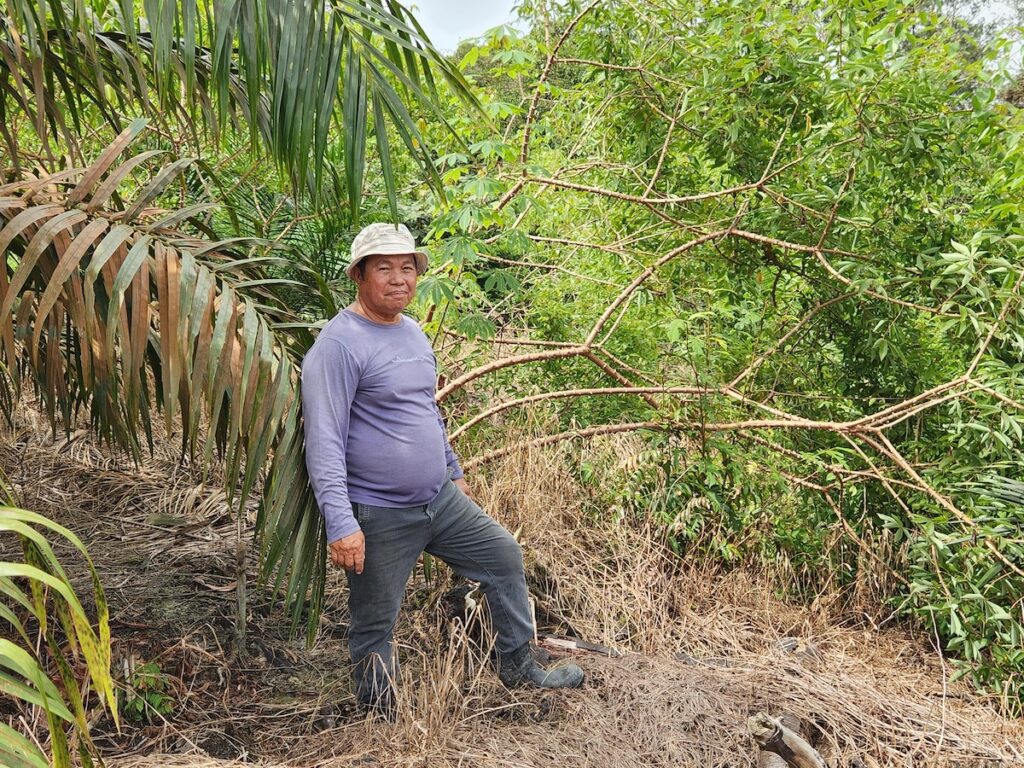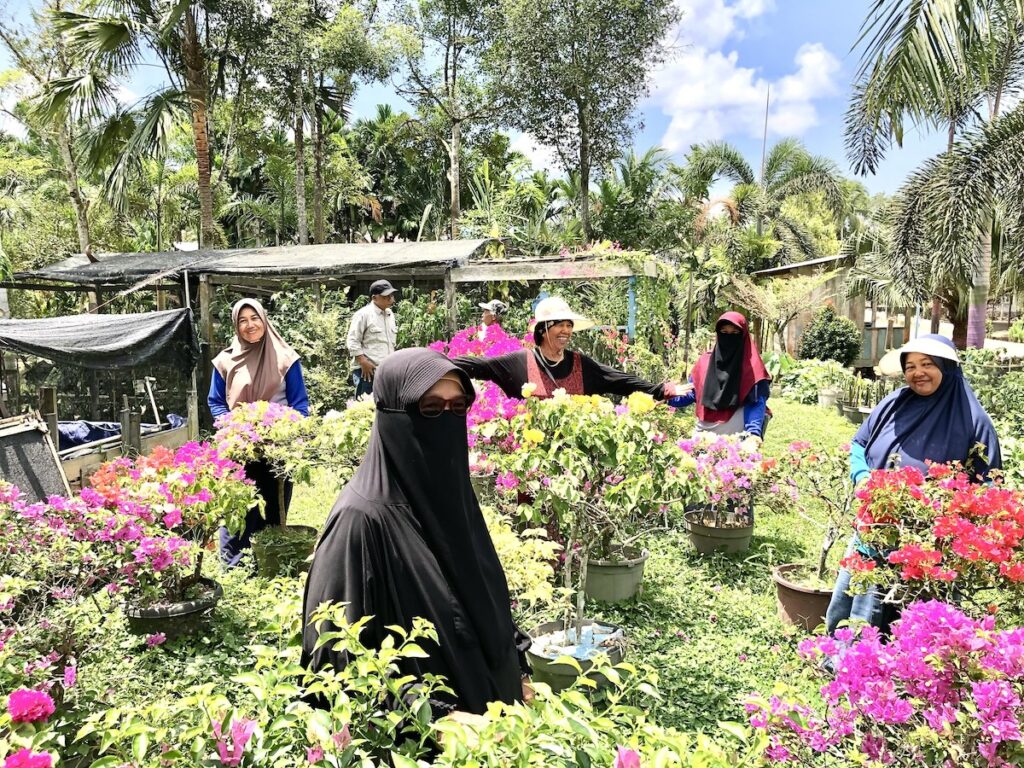Solidaridad will manage the resource centre to develop programmes and products for smallholders to adhere to Indonesian Sustainable Palm Oil (ISPO) standards. The resource centre will also promote regenerative agriculture in palm oil.
Solidaridad, in close collaboration with the Ministry of Agriculture, will bring together some of Indonesia’s best extension experts in the resource centre to provide extension education, research, innovations, and assurance and certification support to the smallholders.
Sound, balanced, and sustainable practices are the key elements of estate crops development in the global market. Therefore, the government needs support and participation from all relevant stakeholders of various elements of civil society. In this regard, the Directorate General of Estate Crops supports activities that Solidaridad will implement to assist farmers, so they may support the sustainability of estate crops development, particularly in the oil palm sector and under government regulations.
Ali Jamil, Director General of Infrastructure, Indonesia
Smallholders will drive growth in palm oil
It is predicted that the area of Indonesian smallholder plantations will continue to increase and account for around 60 percent of Indonesia’s oil palm plantation area by 2030. This is mainly because Asia will need much more vegetable oil than the present and large-scale plantations have already reached optimal productivity and it is increasingly becoming difficult for them to expand into new areas. In this scenario, growth is then automatically expected to come from smallholders.
For millions of smallholder families in Indonesia, oil palm contributes to household wellbeing, food security and rural livelihoods. Because it can be harvested year-round, it provides a steady cash flow and is often regarded as the one crop that can help a family out of poverty within a generation. As such, rural poverty alleviation, food security and economic development are important contributions of the Indonesian oil palm sector. However, the smallholder oil palm farmers will require support to sustainably increase yields, connect with high-value supply chains and meet the social and environmental standards.
The resource centre will support smallholders’ ISPO uptake
To date, the individual company sustainability policies, and collective initiatives like Roundtable on Sustainable Palm Oil (RSPO) have not been able to significantly improve the position of smallholder farmers in the palm oil sector. The Indonesian Sustainable Palm Oil (ISPO) is a viable alternative to sustainability initiatives. However, a very small percentage of smallholders are certified under ISPO. The smallholder farmers lack training, guidance and capacity building to comply with the ISPO process. Dedicated attention to the smallholder oil palm producers would be needed in order to meet the mandatory requirement of ISPO certification.
Integrating regenerative agriculture with ISPO
Solidaridad will combine regenerative agriculture practices for oil palm for the smallholders alongside the ISPO certification. The aim is to increase biodiversity and improve the soil health in smallholders’ farms by introducing mixed-use systems and using methods like no-till, cover-cropping and mulching, which involves returning organic waste back to the earth. The resource centre will make available the latest techniques around regenerative practices that will boost yields and reduce the need for harmful chemicals, while making the crops more resilient to pests and diseases.
Regenerative agriculture could also unlock new revenue streams. Diversified crops could provide new income and be a buffer in changing markets; meanwhile, sustainably-produced palm oil could be sold at a premium. The growing carbon market – which is already tapping into the potential of agroforestry – could provide new business opportunities for farmers whose methods can be proven to lock more carbon in the soil.
Managing Director Shatadru Chattopadhayay thanked the Ministry of Agriculture, Government of Indonesia for the opportunity to set up the resource centre in the Ministry’s building.
The resource centre will allow us greater coordination with the government and create improved efficiency in serving the oil palm farmers of Indonesia for their prosperity, inclusion, and ability to combat climate change. The resource centre will deploy state-of-the-art digital technologies like Soli-Trace and offer early access to knowledge and information for the smallholders contributing to the transparency in value chains.
Shatadru Chattopadhayay, Solidaridad’s Managing Director in Asia

